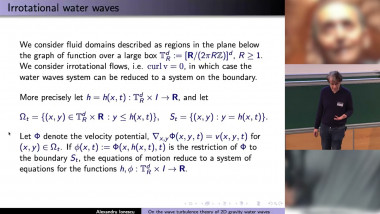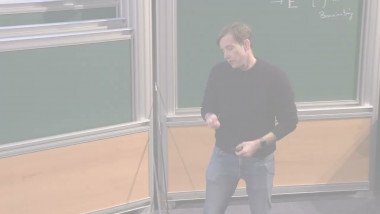
On the Wave Turbulence Theory of 2D Gravity Water Waves
De Alexandru Ionescu

Anomalous Diffusivity and Regularity for Random Incompressible Flows
De Scott Armstrong
Apparaît dans la collection : 2023 - T3 - WS3 - Computer algebra for functional equations in combinatorics and physics
Feynman integrals are a type of mathematical function that are important for precision measurements in physics. They are notoriously difficult to evaluate, and a lot of effort has been devoted to developing efficient analytic and numerical methods for doing so. In this talk, we will present a new algorithm for determining the minimal order Picard-Fuchs operator associated with a given Feynman integral. This operator is a differential operator that governs the analytic behavior of the Feynman integral. We will first discuss an implementation of the Griffiths-Dwork algorithm for the case of Feynman integrals in integer spacetime dimension. In that case, the integrand of the Feynman integral is a rational differential form to which the Griffiths-Dwork reduction is applied for determining the Picard-Fuchs operator. We will then extend this algorithm to the case of generic spacetime dimension. In this case, one needs to consider twisted cohomology. We will show how the knowledge of the Picard-Fuchs operator can be deduced by Hodge theoretic considerations on the variation of the mixed Hodge structure associated to the Feynman integral. This talk is based on work with Pierre Lairez, Eric Pichon-Pharabod, Charles Doran, and Andrew Harder.
